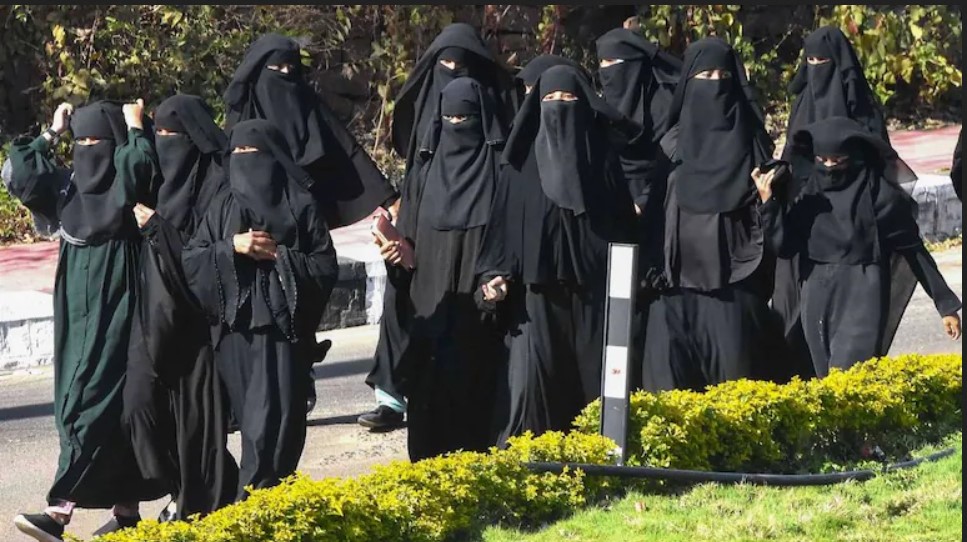School authorities have suspended seven teachers for allowing Hijab-clad girls to appear for the Class 10 exam.
The teachers were on the duty at CS Patil girls high school located in Gadag, Karnataka.
Earlier, an invigilator, Noor Fatima was suspended after she refused to take off her hijab while conducting the SSLC (Class 10) exam at KSTV High School.
The action comes after the Karnataka High Court order dismissed petitions seeking direction for permission to wear hijab in classrooms.
The court said the wearing of the hijab was not an essential part of Islam. “The prescription of uniform is constitutional and students can’t object to it”, it added.
Supreme Court refused to give any specific date to hear a plea challenging the Karnataka high court order.
As many as 8,73,846 students have enrolled for SSLC exams this academic year among which 4,52,732 are boys and 4,21,110 are girl students. Four students belonging to the third gender and 5,307 specially-abled children are also taking exams.
Section 144 was clamped in and around 3,444 examination centers across the state and tight police security was deployed at all examination centers to avoid any showdown or untoward incidents. As many as 60,000 government officers monitored the examinations.
All India Muslim Personal Law Board (AIMPLB) has approached the Supreme Court challenging the Karnataka High Court judgment, which upheld the ban on hijab in classrooms.
The plea said: “It is a case of direct discrimination against Muslim girls. The High Court has created a distinction between the principles laid down in the case of Bijoe Emmanuel by giving different contextual meaning (as a case of discipline) and on the other hand, the practice of hijab, is reflected as if it was a case disturbing the entire uniform that too when this minor variation (of covering the head like the Sikh’s do) can be reasonably accommodated within the constitutional norm being part religious practices.”
Discover more from The Kashmir Monitor
Subscribe to get the latest posts to your email.




